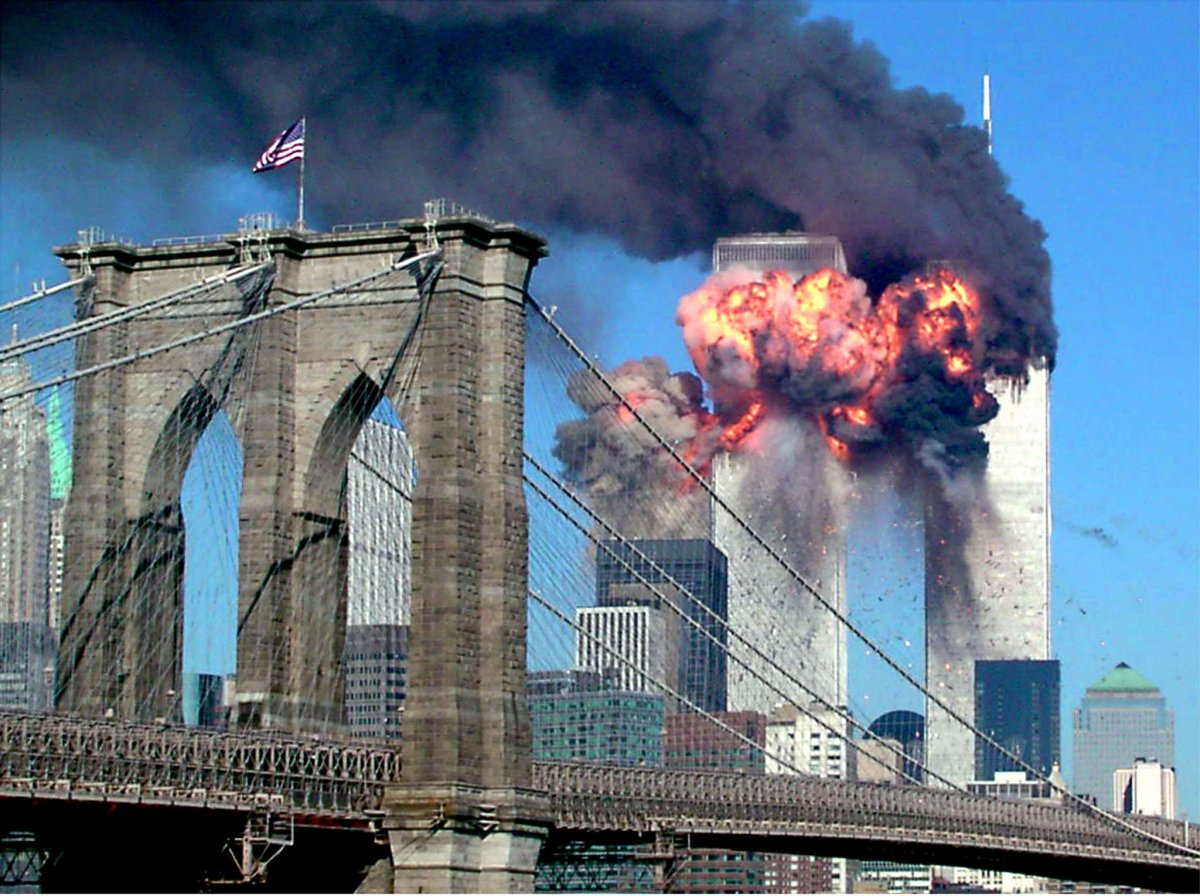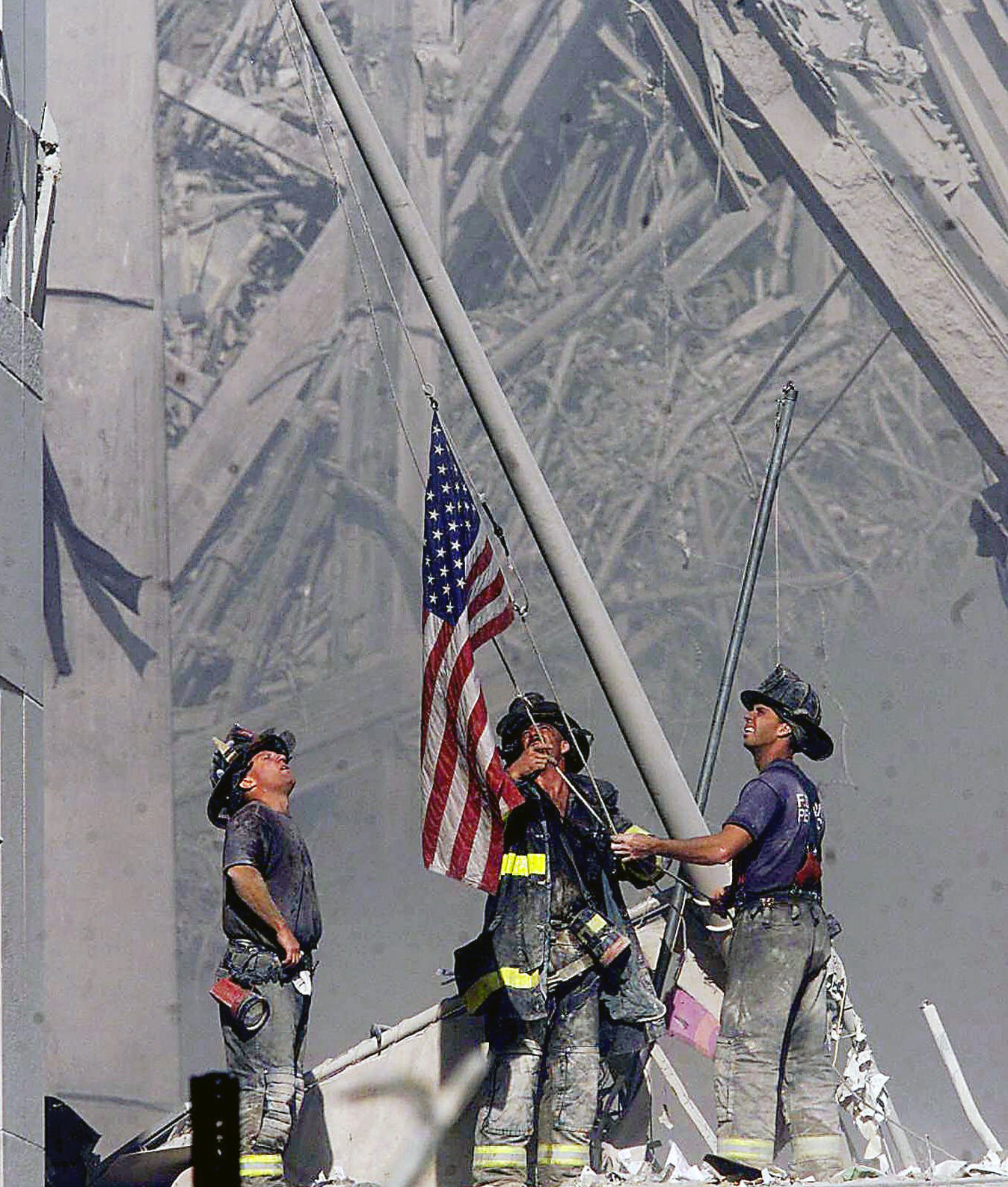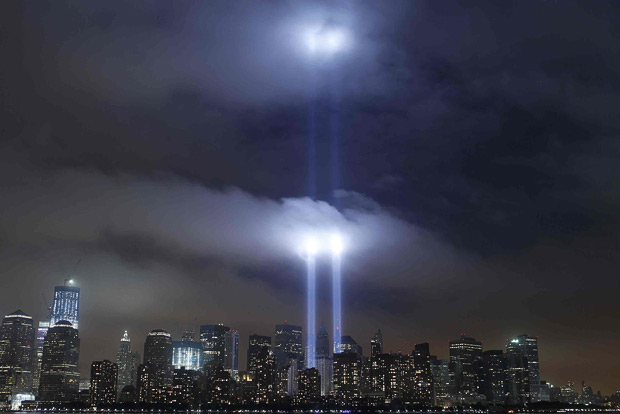Questioner 1: It’s hard to believe that it has been 14 years since 9.11. America is stuck in a negative feedback loop, making it seem like the attacks happened last year. Can we talk about the state of politics in the world today?
 Questioner 2: Do we have to? Any benefit from exploring the swamps seems to be gone. What is the significance of politics? Many people have tuned out completely, and now I understand why.
Questioner 2: Do we have to? Any benefit from exploring the swamps seems to be gone. What is the significance of politics? Many people have tuned out completely, and now I understand why.
Q1: Do you think politics doesn’t matter?
Q2: There’s a reason that news (which has been corrupted by entertainment values) and political commentary go together hand in hand. The political dimension, which isn’t the same thing as politics, is synonymous with the present world, and concern for day-to-day events, true?
Q1: Even so, does it matter?
Q2: Does it matter inasmuch as the present era advances or threatens the human prospect? There are times when terrible events are turned to higher purpose, such as the American Civil War, which began as a states rights issue, but culminated with the higher purpose of ending slavery, though we still suffer from its legacy today.
There are other periods, such as the present one, when the vast majority of people feel no great issue is before us, or are overwhelmed by how many there are. So is the question, despite the general despondency about the human prospect, and the retreat into of self-concern by so many, what is great issue at the present time?
Q1: I can think of several. There’s the global threat posed by climate change, accompanied by the decimation of animal and plant species.
There’s the human tide of migrants washing onto Europe’s shores, families fleeing the horrors in Syria and other places in the Middle East, or extreme poverty in Africa. It’s compelling a complete reexamination of the meaning of sovereignty and borders, not only in Europe but the entire world.
Then there’s the issue of extrajudicial killing by drones and Special Forces of individual countries, national sovereignty without the rule of law. The United Kingdom just followed the lead of the United States by engaging in executions-by-drone, without due process, two of its citizens that had joined ISIS. Beginning with the illegal invasion of Iraq, the US and UK have made a mockery of international law.
Q2: So what is the question?
Q1: Is there any resolution, or even adequate response, at the political level?
Q2: The Syrian slaughter and diaspora could have been slowed, if not stopped, if President Obama had taken a modicum of political risk, and acted, rather than wrung his hands or sat on them. Arming rebels has been a fool’s errand, but genuine humanitarian intervention would have worked, and still could.
Q1: Wasn’t that tried and didn’t it fail in Libya?
Q2: The humanitarian mission to protect the imminent slaughter of thousands by the mad Gaddafi quickly morphed into siding with the rebels to overthrow the regime. That was the mistake, not the humanitarian intervention. “Responsibility to protect” means something.
Q1: Are you saying that by failing to act to provide sanctuaries, safe corridors and protected air space, President Obama has given a lie to his repeated claim of America’s indispensable leadership?
Q2: Yes.
Q1: Russia and Iran side with Assad, what could Obama have done?
Q2: We rule the skies over Syria at present, and bomb ISIS targets with impunity. What America is doing now it could have done before with humanitarian intent and goals, carefully stated and maintained. And it would have worked. It’s still the only way ahead.
Q1: Isn’t that playing right into the hands of Republican extremists where Obama is concerned?
Q2: The best way to support a political leader is to demand the best of him or her. Besides, Obama’s presidency will be a failure, and his legacy ruined, if Trump or another Republican extremist becomes president.
There’s no greater mistake a political leader can make than missing an opportunity to advance universal principles when pragmatic politics affords it. Compromise and consensus are political tactics, not political strategies. As Syria shows, national interest, local responsibility and cold reason have been shown to be empty and defunct premises.
Q1: Is there an underlying factor that is giving rise to all these crises?
Q2: Aren’t all of these interrelated crises actually a crisis of human consciousness? Dealing with so-called political reality is hacking at the branches without addressing the underlying causes of division, conflict and fragmentation. To take politics as a given, to see the world as “the immutable human condition,” is heartless, unconscionable and purblind.
Q1: As bad as the refugee crisis is, it may be opening hearts.
Q2: That may be wishful thinking, but awakening the compassion of intelligence is the only way ahead now.
Martin LeFevre

